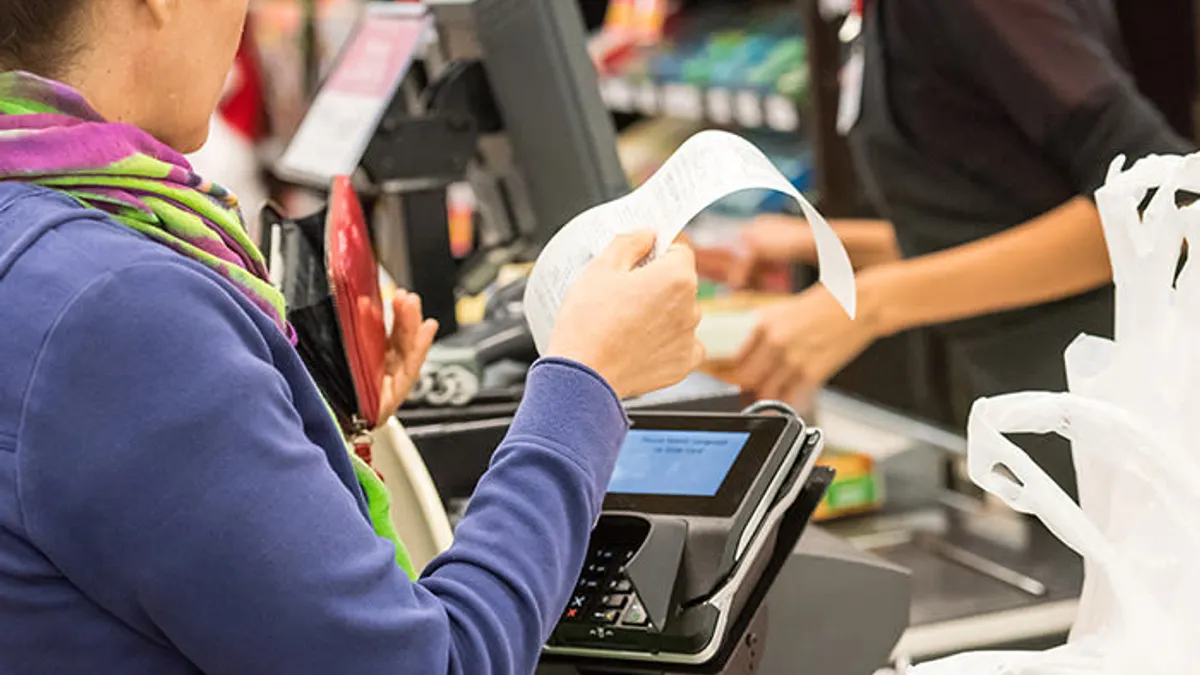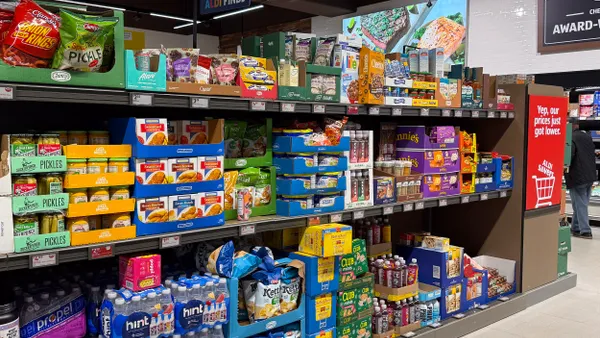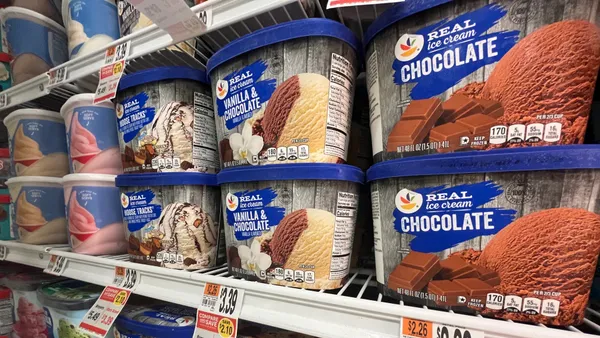Dive Brief:
- Catalina Marketing on Wednesday filed a legal complaint against Quotient Technology, alleging that the rival coupon and in-store marketing data company damaged its business with illegal below-cost pricing and unfair business practices, according to information provided to Marketing Dive. The lawsuit, filed in the Sixth Judicial Circuit Court of Florida, seeks unspecified damages and an injunction to halt interference with Catalina's business relationships with customers.
- Catalina claims that Quotient paired its predatory pricing with misleading communications to lure consumer packaged goods (CPG) brands away from Catalina. The communications implied that CPG brands would need to "transition to Quotient" to provide in-store coupons services at Albertsons grocery stores.
- Catalina's suit alleges that Quotient, which operates Coupons.com, also harmed CPG brands and consumers in violation of the Florida Deceptive and Unfair Trade Practices Act, the California Unfair Practices Act and the California Unfair Competition Law. Quotient declined to comment on the suit when reached by Marketing Dive.
Dive Insight:
Catalina's lawsuit against Quotient is a sign of the intense competition among couponing companies to forge stronger relationships with CPG brands and retailers against a backdrop of major changes in consumer shopping habits. Catalina's allegations date back to the pre-pandemic era, accusing Quotient of misleading CPG brands into believing that it could provide in-store coupon services at Albertsons in 2019.
"As a result of Quotient's predatory pricing and misleading communications, Catalina was no longer able to provide its in-store marketing services in Albertsons stores and lost business from CPG brands," according to the complaint. "Catalina was harmed through lost sales revenue and other business opportunities."
Catalina claims that CPG brands and consumers suffered damages as a result of Quotient's alleged business practices. The suit alleges that Quotient "causes injury to Florida consumers by depriving them of increased savings at retail outlets both within and outside of the State of Florida." The company claims that redemption rates for coupons distributed through its in-store printers are "much higher" than those printed at the end of a receipt, as offered by Quotient.
Catalina, long a stalwart of in-store couponing has struggled as the marketplace becomes increasingly digitally driven. Catalina became a private company in 2007, filed for bankruptcy in 2018 and emerged successfully a year later.
Earlier this month, Quotient reported that fourth quarter revenue was up 20% year-over-year for a total of $142.5 million. For the year, revenue increased 2% for a total of $445.9 million.
Catalina's lawsuit comes as changes in consumer shopping habits have accelerated during the pandemic, leading shoppers to use fewer printed coupons in favor of digital offers. Digital coupon redemptions overtook redemptions of the most popular paper coupons for the first time during the second quarter of last year, according to market research firm Inmar Intelligence cited by The Wall Street Journal. Walgreens in June suspended its print circular of weekly deals amid an 80% surge in digital coupon redemptions, the newspaper reported. Quotient's digital couponing clients include CVS, Mondelez International, Procter & Gamble and Walgreens, according to the Journal.
It's too early to tell how Quotient will defend its alleged actions, but the case would reveal more insights into how the coupon industry works with CPG brands and retailers.













